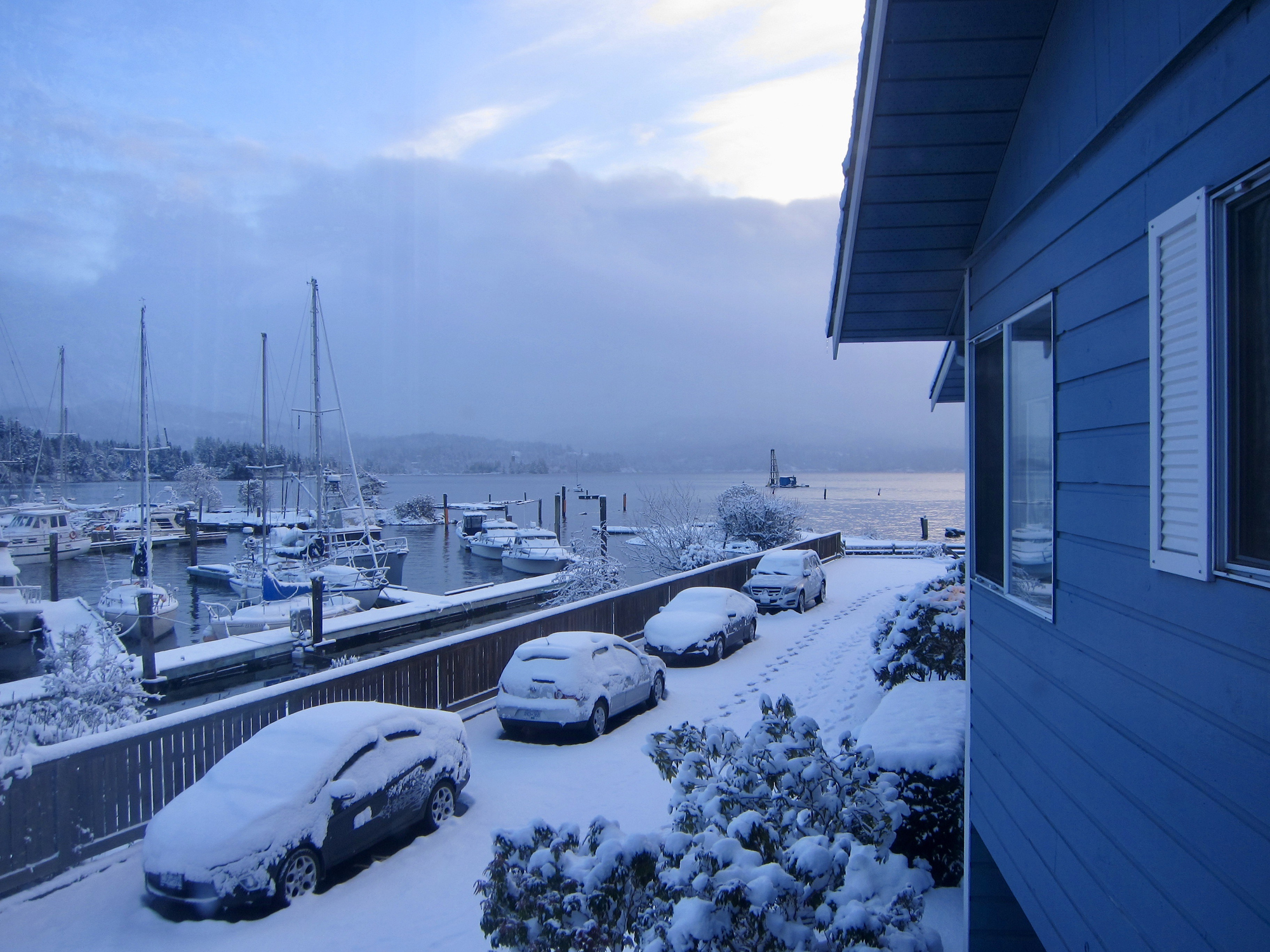There’s a saying in Western Canada: “If you don’t like the weather, wait five minutes!”
Sure, summers are hot and winters are cold and snow isn’t as likely in July as it is in February. But, this doesn’t mean that freak winter storms don’t appear when least expected!
It’s not uncommon for cities like Calgary and their surrounding areas to see almost summer-like weather for days, or even weeks, during the early spring, and they suddenly get a late winter storm that ices over highways, shuts down cities, and makes it look like January.
As a professional driver, you need to prepare for these types of conditions when driving in Western Canada. A little preparation goes a long way!
Late Winter Storms
A truck driver can see all four seasons in a day, especially when driving between the Rocky Mountains of BC and the foothills and prairies of Alberta. The same goes when driving between BC’s Lower Mainland and the higher elevation mountain passes to the East.
Dry pavement can turn to snowy and icy pavement with little warning. And, since the spring and early summer are warmer, the ice-covered highways at this time of the year are often much more slippery than snowy roads when it’s colder. This is because wet ice is the road surface with the least available traction.
The province of BC does have special rules in place regarding tire chains. Generally speaking, you must carry tire chains on your truck between the dates of October 1st and April 30th every year (although these dates can change based on region and year). You can access information about BC’s tire chain laws at this website. [1]
Now, let’s talk about essential information to keep in your truck.
Essential Items
If you’re prepared for winter driving because you have all the right tools, gear, and clothing, good for you! All you need to do is keep that equipment with you into the summertime. This may seem like a pain, but it’s better to have the stuff and not need it then need it and not have it.
So, what if your company wants to remove tire chains after chain season due to their weight? If this is the case at your company, be sure to take extra care to plan your routes, and be prepared to stop and wait out bad weather. BC – and any other province, if local law enforcement decides to do so – can require tire chains whenever conditions make them necessary.
Tire chains aside, here are other items you should carry in your truck to prepare for winter weather, divided into the three main categories of clothing, vehicle, and emergency.
Appropriate Clothing
You should always have appropriate work clothing (i.e., personal protective equipment, or PPE) with you that can keep you warm and dry for all the tasks related to your job, from doing vehicle inspections to performing more strenuous outdoor tasks, like tarping flatbed loads.
Personal clothing and other items, like sleepwear and bedding, should allow for comfort and protection when living out of the truck in the event of a storm. So, don’t ditch the boots and heavy blankets in April!
Keep in mind that late winter storms are generally warmer than those in the middle of winter, meaning you’re more likely to get wet and also overheat when working outside in heavy clothing. Getting wet is dangerous when it’s cold out, and wet clothes quickly lose their insulating properties. Make sure you have stuff that can keep you dry, too, and consider spares.
Vehicle Equipment and Supplies
This will vary between vehicles, so be sure to check with your maintenance department or other qualified technicians to see what cold- and wet-weather supplies and tools you should carry.
This list should include things like:
- Cold-weather washer fluid
- Airbrake antifreeze
- Diesel fuel conditioner
- Tools for installing tire chains
- Tools needed to unstick frozen brakes
- Jumper cables
Emergency Equipment
You should carry enough food and water for at least 72 hours, and this needs to be separate from your daily supplies so you don’t run out mid-run.
Make sure you have roadside warning devices, a charger cell phone, adequate bedding to keep you warm if your heater fails, reflective clothing, a flashlight, a first aid kit, and any personal items you may need, like medication.
Conclusion
Late winter storms can be inconvenient and dangerous, but they are also to be expected in Western Canada. But, with a little preparation, you can be be ready for whatever winter throws your way!
References
- BC tire chain information and active chain-ups site: https://www.drivebc.ca/chainup.php





Comments are closed